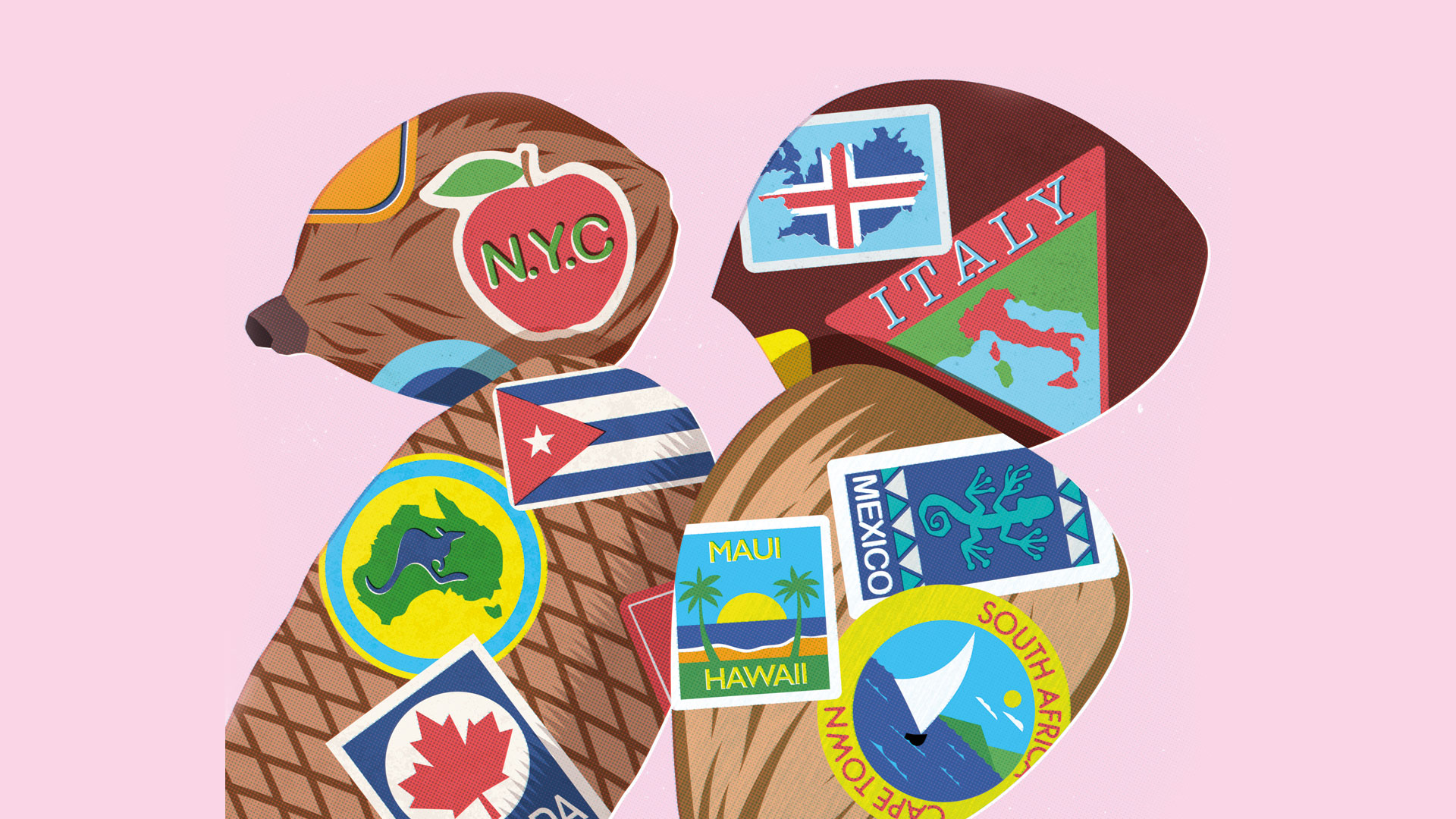Seeds are amazing. They can travel thousands of miles across oceans and continents and can live for thousands of years. Coral beans and hamburger beans produced by tropical plants in the pea family can live for up to a year in seawater, and frequently wash up on Europe’s shores, a very long way away from home. Probably the champion long-lived seed is that of the humble date palm. Seeds of this species have been found by archaeologists still to be alive after more than 2,000 years, so next time you eat a date and spit out the seed, show it some respect!
Dates are a good example of our relationship with seeds. It is not an exaggeration to say that human civilisation was built on the seed. The domestication of seed-bearing plants, such as wheat, barley and rice around 10,000 years ago enabled complex civilisations to be formed because not everyone was required to go out and look for food. Today, 50 per cent of our calorie intake comes from just three kinds of seed: rice, wheat and maize.
The smallest seeds, such as those produced by orchids, can barely be seen with the naked eye. The world’s largest seed is the double coconut or coco de mer which is the size of your head. Perhaps most astonishing of all is the fact that a seed that is only 5mm in diameter has the potential to grow into the world’s tallest living organism, the giant coastal redwood of North America, which reaches a height of over 91 metres (300 ft).
Over a period of more than 300 million years, seeds have evolved into every size, shape and colour imaginable. Botanists estimate that there are 370,000 seed-bearing plant species found throughout the world. However, with around 2,000 new species being discovered and described each year, that figure continues to grow . Unfortunately, with vast tracts of primary vegetation being cleared for human use – particularly for agriculture – many plant species are disappearing without our knowledge. Current estimates suggest that one in five of the world’s plant species is threatened with extinction.

This matters because plants are fundamental to the ecology of this planet and, by extension, to our survival. They convert energy from the sun and turn it into food, forage, building materials, medicines and other products, and, equally importantly, are key components of the ecosystem services essential to life, including the water, carbon and nitrogen cycles.
The vast majority of plant species (more than 80 per cent) are found in the tropics but even places as inhospitable as Antarctica and the Sahara Desert have seed-bearing plant species. A recent survey concludes that humans
cultivate about a third of known plant species in botanic gardens and horticulture, mainly in the temperate northern hemisphere.





